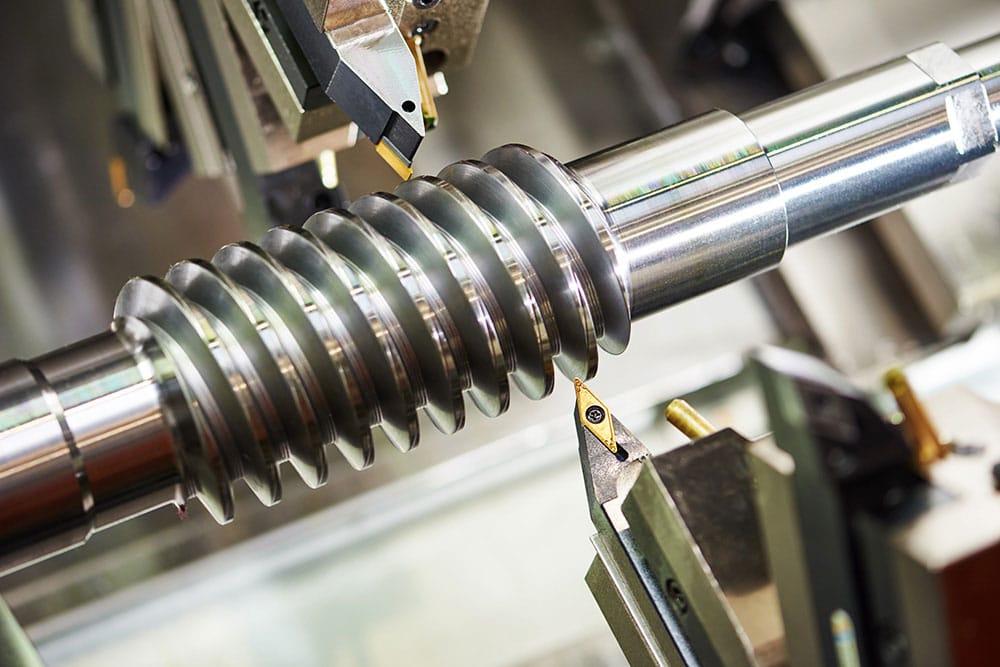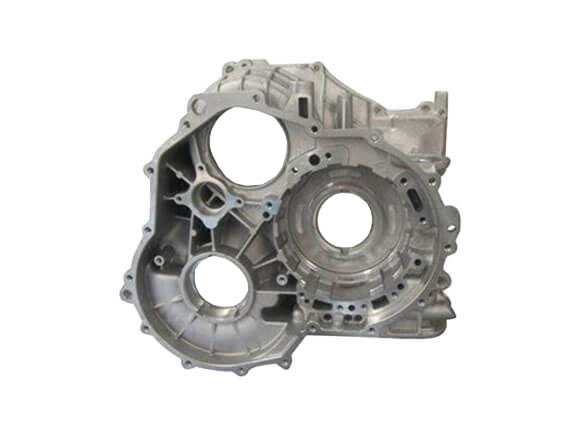Exactly How Aluminum Casting Adds To Efficient Production Solutions
Light weight aluminum casting plays a necessary duty in modern-day production. Its lightweight nature and corrosion resistance make it a preferred selection for various markets. Strategies such as die casting and sand casting permit the production of detailed get rid of very little waste. The integration of automation more enhances manufacturing performance. However, the effects of these developments extend past simple productivity. Comprehending the more comprehensive influence reveals substantial understandings into the future of manufacturing
The Benefits of Aluminum in Production
Although different metals are made use of in manufacturing, aluminum sticks out as a result of its special properties that improve manufacturing efficiency and product performance. Its lightweight nature especially decreases transportation expenses and power needs in different applications. Aluminum's superb deterioration resistance warranties durability and sturdiness, reducing the need for constant substitutes and maintenance. This steel can be conveniently molded and shaped, enabling functional design alternatives that fulfill specific sector needs. Furthermore, aluminum exhibits exceptional thermal and electric conductivity, making it a perfect option for applications needing effective warmth dissipation and electric administration. The recyclability of light weight aluminum also plays a crucial function in sustainable production practices, as it can be recycled without losing its integral residential properties. On the whole, the benefits of light weight aluminum in making bring about set you back financial savings, enhanced product longevity, and a reduced environmental footprint, making it a favored material in various sectors.
Trick Aluminum Casting Techniques
Aluminum casting methods are important for generating top quality components in numerous making procedures. The main techniques consist of sand spreading, pass away spreading, and financial investment casting. Sand casting includes creating a mold from sand, which permits huge components and complex forms. This technique is typically favored for its cost-effectiveness and adaptability. Pass away spreading, on the various other hand, makes use of high-pressure to infuse molten aluminum into steel molds, leading to exact, uniform components appropriate for high-volume manufacturing. Financial investment casting provides superior surface coating and complex information by making use of a wax pattern that is dissolved to form the mold. Each of these strategies has details applications and advantages, enabling producers to choose one of the most appropriate technique based upon variables like manufacturing intricacy, material, and volume requirements. By comprehending these crucial strategies, producers can enhance their production performance and assure the integrity of their aluminum parts.
Impact on Automotive Sector
As the auto market increasingly prioritizes light-weight materials to boost fuel efficiency and efficiency, aluminum casting has actually emerged as an important solution. This production procedure allows automakers to generate intricate elements with lowered weight without jeopardizing architectural integrity. By utilizing aluminum spreading, makers can create components such as engine blocks, transmission real estates, and suspension components that are not only lighter however additionally show exceptional thermal conductivity and corrosion resistance.
The adaptability of aluminum casting techniques allows the production of elaborate styles, facilitating innovation in lorry looks and performance. As vehicles end up being a lot more highly advanced, the ability to integrate features like advanced safety systems and electric drivetrains comes to be vital.

Aerospace Applications of Light Weight Aluminum Casting
Aluminum spreading plays a critical role in aerospace applications by enabling the production of light-weight architectural elements that boost gas effectiveness. Furthermore, the precision of light weight aluminum casting permits the production of intricate engine components, which are important for peak efficiency and dependability. This mix of lightweight materials and exact engineering settings aluminum casting as an essential technology in the aerospace market.
Lightweight Structural Parts
In the quest for boosted efficiency and efficiency in aerospace applications, lightweight architectural components have become significantly vital. Aluminum spreading plays an essential function in this venture, giving producers with the ability to generate parts that are both lightweight and solid. The reduced density of light weight aluminum enables considerable weight decreases without endangering architectural integrity, which is essential for airplane efficiency and gas effectiveness. Additionally, light weight aluminum spreadings can be crafted to meet specific style demands, allowing the development of intricate geometries that standard production methods may struggle to achieve. This flexibility not only enhances manufacturing procedures yet likewise adds to overall expense savings. As the aerospace industry remains to highlight sustainability, the demand for light-weight light weight aluminum parts is expected to climb, even more advancing development in production.
Precision Engine Parts
Manufacturers increasingly count on light weight aluminum casting to create precision engine parts for aerospace applications, driven by the product's distinct residential or commercial properties. Aluminum's lightweight nature significantly lowers general aircraft weight, improving gas effectiveness and performance. Its outstanding corrosion resistance assurances longevity in extreme settings, making it excellent for essential engine elements. In addition, light weight aluminum spreading allows for limited resistances and elaborate designs, essential for enhancing engine performance and reliability. The spreading procedure likewise supports mass manufacturing, allowing producers to fulfill high need while keeping top quality criteria. As aerospace modern technology continues to advancement, the role of light weight aluminum spreading in developing precision engine parts will certainly be essential in accomplishing greater efficiency and technology in aircraft layout and performance.
Sustainability and Environmental Benefits
The expanding focus on sustainability in manufacturing has placed aluminum casting as a leading service for ecologically mindful manufacturing. This procedure utilizes recycled aluminum, which considerably minimizes energy intake contrasted to primary light weight aluminum manufacturing. By leveraging scrap steel, manufacturers can decrease their carbon impact and minimize waste, lining up with global sustainability objectives.
Additionally, aluminum spreading generates less dangerous exhausts, contributing to a cleaner environment. The light-weight nature of light weight aluminum likewise boosts fuel effectiveness in transport applications, additionally promoting environment-friendly methods.
The longevity and corrosion resistance of light weight aluminum lead to longer product lifespans, decreasing the requirement for regular substitutes and conserving sources. As industries increasingly prioritize lasting choices, aluminum spreading stands out as an innovative technique that not just fulfills production demands however additionally supports environmental stewardship. This dedication to sustainability settings aluminum casting as a crucial player in the change towards a greener manufacturing landscape.
Expense Performance in Manufacturing
Expense effectiveness is a considerable advantage go right here of aluminum spreading, complementing its sustainability benefits - Aluminum Foundry. The procedure of light weight aluminum spreading allows for the production of intricate forms with very little waste, which is especially essential in a competitive manufacturing atmosphere. Making use of light weight aluminum reduces energy costs, as it has a lower melting factor compared to other metals, resulting in decreased energy usage during production
Furthermore, light weight aluminum's light-weight homes add to lower delivery and taking care of prices, additionally enhancing general expense effectiveness. The longevity and deterioration resistance of light weight aluminum actors items also mean that they call for much less maintenance and replacement over time, causing long-lasting savings for producers.
Moreover, advancements in casting technologies, such as enhanced mold and mildew styles and automation, have structured production procedures, reducing labor expenses and raising outcome performance. In general, expense effectiveness in aluminum casting plays a vital function in enhancing production operations and supporting affordable pricing methods.
Future Trends in Light Weight Aluminum Casting
The future of aluminum spreading is increasingly formed by improvements in automation and sustainable product advancements. Automation innovations are expected to boost effectiveness and accuracy in the casting process, while lasting practices intend to lower environmental influence. Together, these fads assure to redefine production criteria and methods within the light weight aluminum spreading sector.
Automation in Light Weight Aluminum Casting
Accepting automation is transforming aluminum spreading procedures, leading the way for enhanced efficiency and precision. Automated systems streamline production by lessening human treatment, lowering errors, and increasing throughput. Technologies such as robotic arms and computer mathematical control (CNC) machines permit for consistent and precise shaping of light weight aluminum elements. Furthermore, wise sensors monitor different specifications in actual time, guaranteeing suitable conditions throughout the casting procedure. This assimilation of automation not just reduces preparations however likewise improves product quality by keeping tighter resistances. As makers progressively take on these sophisticated modern technologies, the light weight aluminum casting market is readied to experience considerable enhancements in operational efficiency, cost-effectiveness, and competition in the worldwide market.
Lasting Product Innovations

Often Asked Questions
What Kinds Of Aluminum Alloys Are Generally Used in Spreading?
Commonly made use of light weight aluminum alloys in casting consist of 356, 380, and 413. These alloys are preferred for their exceptional fluidness, stamina, and rust resistance, making them suitable for a variety of commercial applications.
Just How Does Light Weight Aluminum Casting Compare to Various Other Steel Casting Approaches?
Aluminum casting typically supplies reduced weight, exceptional deterioration resistance, and far better thermal conductivity contrasted to various other steel casting techniques. Additionally, it allows for complex layouts and faster manufacturing cycles, boosting total manufacturing efficiency and performance.
What Industries Advantage The Majority Of From Light Weight Aluminum Spreading?
The automotive, aerospace, and electronics industries profit most from light weight aluminum casting. These industries use its light-weight, corrosion-resistant properties to boost performance, decrease gas intake, and boost overall item efficiency, making aluminum casting increasingly crucial.
Are There Specific Layout Limitations With Light Weight Aluminum Casting?
Yes, aluminum spreading has style limitations, consisting of constraints on wall density, complex geometry challenges, and potential concerns with achieving limited tolerances (Aluminum Casting Company). These elements can influence the general stamina and functionality of the end product
Just How Is Quality Assurance Maintained in Aluminum Casting Processes?
Quality control in light weight aluminum casting processes is kept via rigorous evaluations, adherence to standardized treatments, and making use of innovative technologies. Regular tracking assurances dimensional precision, surface honesty, and material uniformity throughout manufacturing, promoting general reliability.
As the auto sector significantly prioritizes light-weight products to enhance fuel efficiency and performance, light weight aluminum spreading has actually emerged as a critical remedy. Aluminum spreading plays a crucial role in aerospace applications by making it possible for the production of light-weight structural elements read this post here that boost gas efficiency. you could try here Expense effectiveness is a substantial advantage of light weight aluminum spreading, complementing its sustainability benefits. Welcoming automation is changing aluminum casting processes, paving the method for improved performance and accuracy. Recycled light weight aluminum usage has gotten grip, significantly lowering energy usage contrasted to main light weight aluminum production.